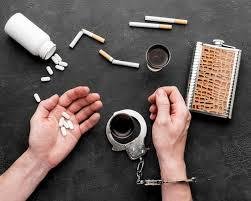Alcohol Detox at Home: Risks and Recommendations

Alcohol detox is the first step toward recovery for individuals struggling with alcohol dependence. While some people attempt to detox at home, it is essential to understand the risks involved and follow proper guidelines to ensure safety. A medically supervised detox at a rehabilitation centre in Pune can provide the necessary support and medical care to prevent severe withdrawal complications.
Understanding Alcohol Detox
Alcohol detoxification is the process of eliminating alcohol from the body after prolonged use. During this period, individuals may experience withdrawal symptoms as their bodies adjust to the absence of alcohol.
Common Withdrawal Symptoms
-
Mild Symptoms – Anxiety, nausea, sweating, and headaches.
-
Moderate Symptoms – Increased heart rate, tremors, irritability, and confusion.
-
Severe Symptoms – Seizures, hallucinations, high blood pressure, and delirium tremens (DTs).
Risks of Alcohol Detox at Home
Detoxing at home can be dangerous without medical supervision. Some risks include:
1. Severe Withdrawal Symptoms
Withdrawal can be unpredictable, and some individuals may experience life-threatening symptoms such as seizures and delirium tremens.
2. Dehydration and Nutritional Deficiencies
Chronic alcohol use can lead to dehydration and deficiencies in essential vitamins, making detox more difficult and increasing health risks.
3. Risk of Relapse
Without professional support, cravings and withdrawal symptoms can make it harder to resist the urge to drink, leading to relapse.
4. Mental Health Challenges
Anxiety, depression, and mood swings are common during detox. Without proper psychological support, these issues can become overwhelming.
Recommendations for Safe Detox
If you are considering alcohol detox, follow these recommendations to reduce risks:
1. Seek Medical Advice
Before attempting detox, consult a doctor or a rehabilitation centre in Pune to assess your condition and determine the safest approach.
2. Have a Support System
Inform a trusted friend or family member about your detox process so they can assist you if needed.
3. Stay Hydrated and Maintain Nutrition
Drink plenty of water and eat a balanced diet rich in vitamins and minerals to support your body’s recovery.
4. Manage Withdrawal Symptoms
-
Over-the-counter Medications – Pain relievers for headaches and anti-nausea medication can help.
-
Relaxation Techniques – Meditation, deep breathing, and gentle exercise can reduce anxiety.
When to Seek Professional Help
If you experience severe withdrawal symptoms, seek immediate medical assistance. A rehabilitation centre in Pune can provide:
-
Medication-assisted detox to manage symptoms safely.
-
Medical monitoring to prevent complications.
-
Emotional and psychological support to address mental health challenges.
Conclusion
While alcohol detox at home may seem convenient, it carries significant risks. Professional detox at a rehab centre in Pune ensures safety, medical supervision, and long-term recovery support. Seeking expert help is the best decision for a successful and lasting recovery journey.






